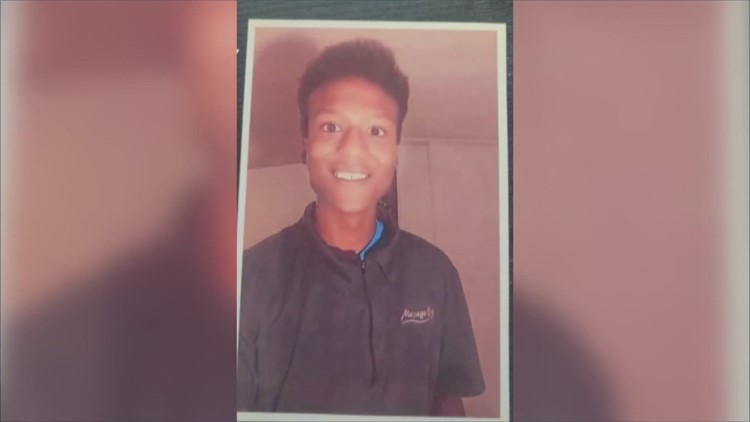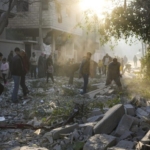[ad_1]

Nathan Woodyard faces a single charge of reckless manslaughter.
BRIGHTON, Colo. — Jurors had the day off Monday in the case against an Aurora police officer charged in the 2019 death of Elijah McClain – the third delay in the trial caused by witness scheduling issues.
The reason? This trial has moved much more quickly than the one involving two other Aurora officers that wrapped up Oct. 12 – despite the fact that the slate of prosecution witnesses was nearly identical in both of them.
“Every jury and every juror are different,” 9NEWS legal analyst Scott Robinson said. “Typically, jurors don’t like delays that lengthen the length of their stay as a juror in a case. But in a serious case, most jurors are pretty understanding about delays.”
Aurora police officer Nathan Woodyard faces a single count of reckless manslaughter in McClain’s death.
He was the first officer to confront McClain on an Aurora street after a 911 caller said the man was wearing a mask and seemed “sketchy.” Woodyard was quickly joined by two other officers, Randy Roedema and Jason Rosenblatt, and the three of them restrained McClain during a struggle.
At one point, Roedema said that McClain had tried to grab Rosenblatt’s gun, and the struggle intensified. Rosenblatt attempted a carotid neck hold but was not successful. Then Woodyard did it, rendering McClain unconscious.
That carotid hold is at the center of the case against Woodyard, one of five first responders indicted in McClain’s death. The hold involves using the biceps and forearm to squeeze the arteries that deliver blood to the brain with a goal of gaining compliance.
It can also have serious health consequences.
Two doctors called by the prosecution and certified as experts told the jury that McClain suffered a cascade of medical problems after the carotid hold – low oxygen to his brain, a surge of acid in his body, and vomiting. McClain inhaled some of that vomit, making it difficult for him to breathe.
Despite repeatedly saying he could not breathe, the officers – and later paramedics – did not check his vital signs or take other steps to assess his medical condition. A dose of the sedative ketamine, administered by paramedics, has been blamed for ultimately causing his death.
The delays have come after difficulty re-scheduling travel plans for both prosecution and defense witnesses.
Robinson said the delays could serve to keep the jury more fresh – but could also break their concentration.
“There really isn’t a way to measure which side is hurt more by unanticipated delays,” he said. “The reality is that at least we hope neither side is prejudiced by rescheduling is required because of unavailable witnesses.”
McClain died three days after the Aug. 24, 2019, confrontation.
Then-Adams County District Attorney Dave Young cleared the officers of any criminal wrongdoing. Later, Gov. Jared Polis appointed Attorney General Phil Weiser as special prosecutor in the case, and he took evidence to a grand jury. That led to indictments against the three officers – Rosenblatt, Roedema and Woodyard – and two paramedics.
On Oct. 12, a different jury acquitted Rosenblatt but found Roedema guilty of criminally negligent homicide and third-degree assault.
The paramedics, Jeremy Cooper and Peter Cichuniec, are scheduled to go on trial in late November.
Sentencing for Roedema is scheduled Jan. 5. He had been suspended without pay since being indicted in the case, but was fired after being convicted.
Rosenblatt was fired earlier for responding “ha ha” to a photo other officers took appearing to administer a carotid hold on one another at the scene of McClain’s death.
Woodyard remains suspended without pay pending the outcome of this case. If convicted, he could face up to six years in prison.
The paramedics also are suspended without pay while they await trial.
Oct. 20: Officers, EMTs testify Friday in trial of officer accused of causing death of Elijah McClain
SUGGESTED VIDEOS: Elijah McClain death
[ad_2]
Source link







